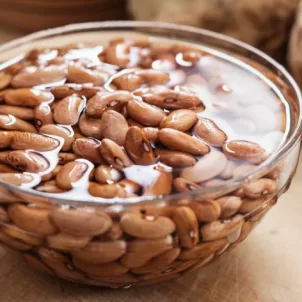Medically Reviewed By
Gaby Vaca-Flores, RDN, CLE
Registered Dietitian Nutritionist
Curious about how digestion works? Jessica Bippen, MS, RD, explains the three phases of digestion and tips on how to improve digestive health.
Everything you ingest runs through your digestive system, and proper digestion is imperative for your overall health. How well it functions determines how well you break down your food, absorb nutrients, and eliminate waste. Plus, when your digestive system is working properly, you simply feel better! After all, no one likes to feel gassy, bloated, or constipated.
That said, when’s the last time you learned about the digestive system? High school anatomy? Consider this guide as a helpful refresher.
Keep reading to learn more about the three phases of digestion and how to optimize digestive function.



How Digestion Works
So, what does the digestive system do? In short, every cell in your body needs energy and nutrients to function. Your digestive system makes it possible! The digestive system consists of a group of organs that work together to transform the food you eat into the energy and nutrients your body needs. When you consume food and beverages, your digestive system gets to work by breaking them down into carbohydrates, proteins, fats, vitamins, and minerals. The bloodstream then absorbs these basic nutrients, carrying them to every cell throughout the body. Finally, the fiber and other components lingering in your digestive system are excreted as waste.
Why Proper Digestion Is Important
A properly functioning digestive system allows you to utilize all the essential nutrients your cells need for growth, repair, and carrying out the essential roles that keep you alive. Everything in your body—including your hormones, heart, and brain—needs the nutrients from the digestive process to work correctly. When your digestive system isn’t functioning optimally, you’re unable to properly digest and absorb vital nutrients. Ensuing side effects of poor digestion include gas, bloating, constipation, diarrhea, and even nutrient deficiencies.3 Phases of Digestion
Digestion can feel like a daunting topic to dive into. We get it! The number of organs and chemical and physical processes involved can make your head spin. But rest assured that it’s much easier to understand how digestion works by looking at the phases of digestion. The three phases of digestion are the cephalic, gastric, and intestinal phases. Respectively, they occur in the mouth, stomach, and intestines. The liver, pancreas, and gallbladder are also included in the digestive system. However, they’re considered complementary organs. While food doesn’t directly move through them, they produce chemicals that allow digestion to occur. It’s essential that these organs work properly to support optimal digestion and nutrient absorption. Let’s take a closer look at each of these phases.
1. Cephalic Phase
The cephalic phase, aka the first phase of digestion, starts in the mouth. Its main role is to break down food into smaller pieces and initiate the breakdown of carbohydrates. This phase starts with the sight, smell, thought, or taste of food to stimulate the body to produce saliva. Once the food enters the mouth, chewing breaks down starchy foods into carbohydrates. Found in saliva, the enzyme amylase begins to digest starch molecules in the food. The food particles then make their way to the stomach via the esophagus.2. Gastric Phase
Digestion really gets going once the chewed food reaches your stomach. The majority of digestion in the gastric phase takes place in the stomach and breaks down protein. The stomach secretes hydrochloric acid, which starts to uncoil the compact protein molecules so other digestive enzymes, like pepsin, can assist in breaking down the protein even further. Enzymes aren’t the only players involved in the gastric phase of digestion. In addition, your stomach muscles play an active role in the digestive process. The muscles in the wall of the stomach contract and release to help mix the food together with gastric juices before it moves on to the small intestine.3. Intestinal Phase
The majority of digestion occurs in the small intestines during the intestinal phase of digestion. This third phase includes carbohydrate and fat digestion, as well as the remainder of protein digestion. Your pancreas secretes a bicarbonate buffer into the small intestine to reduce the acidity of the food mixed with hydrochloric acid coming from your stomach. Once neutralized, the pancreas and liver release digestive enzymes and bile specific to breaking down starches, sugars, fats, and protein peptides. Like those of the stomach, the muscles that line the wall of the small intestine contract to mix the food particles with the enzymes and digestive secretions. This propulsion pushes the food towards the large intestine. Along the way, the walls of the small intestine absorb the nutrients from the digested food and deliver them into the bloodstream. From there, the blood carries the nutrients to cells throughout the body. Finally, the food that isn’t broken down and absorbed until now moves into the large intestines. The large intestine does the last bit of absorption, trying to retain any water or remaining nutrients before elimination.
How to Improve Digestion
Sure, it’s important to understand how digestion works to break down the avocado toast you just ate. But it’s even more essential to know how to actually improve digestion. Try incorporating these tips to support each phase of digestion.Eat mindfully
Have you ever rushed through a meal to find yourself burping or hiccuping shortly after? Chances are you didn’t give your digestive system enough time to do its job effectively. Mindful eating means slowing down and taking the time to chew your food thoroughly. When you chew your food into smaller pieces, it’s easier for your digestive tract to handle. It also permits the chemical processes to take place that help break down carbohydrates and activate other enzymes before moving onto the gastric and intestinal phase of digestion.Don’t chug water with meals
Hydration is extremely important for digestion. However, chugging water during your meal can have the opposite effect. Water can dilute your gastric juices, which are key for breaking down food in the stomach. By no means do you need to avoid all water or liquids at mealtime. That said, you may notice a difference in how well your digestive system functions by saving most of your water consumption in between meals.Supplement with digestive enzymes
Lastly, many factors including genetics, environment, and age impact your ability to produce enough of the right digestive enzymes. And sometimes your digestive system needs a little help! Digestive enzymes are your secret weapon. I recommend taking a full-spectrum digestive enzyme supplement before your meals to support your body’s natural digestion process.More like this









